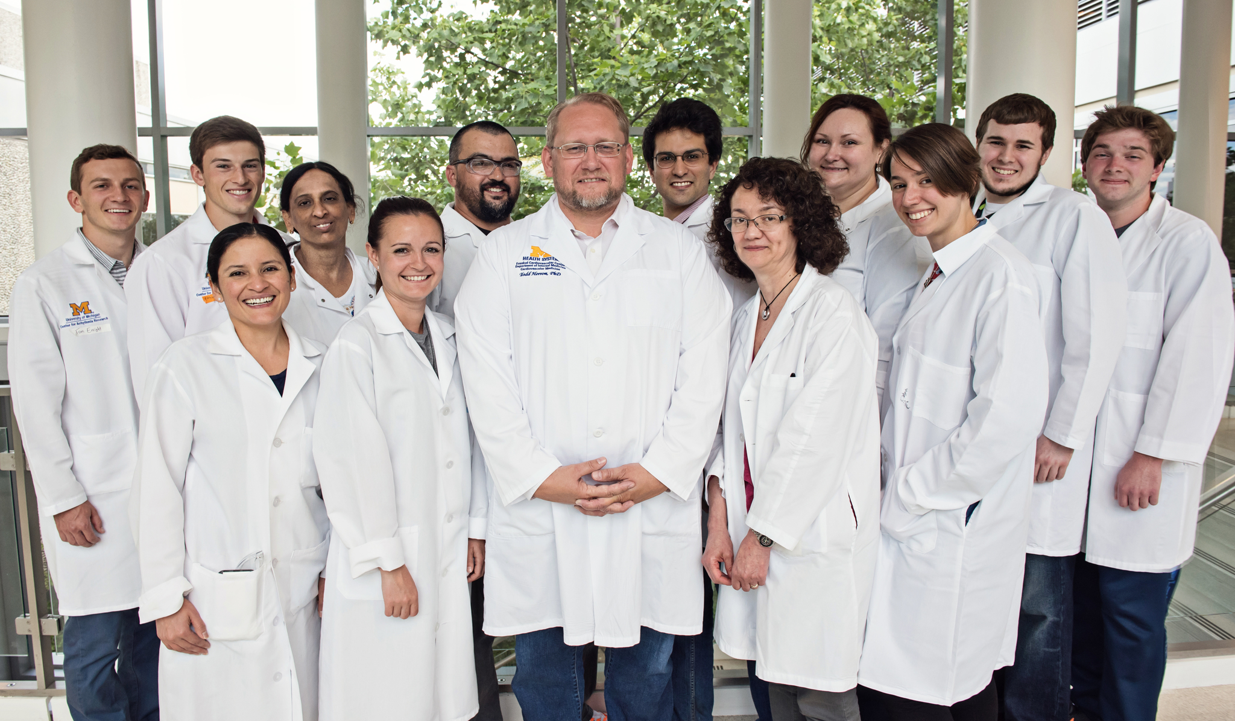
A large number of patients with bipolar disorder have been diagnosed with cardiac arrhythmias, suggesting a mechanistic link between these two diseases. Dr. Todd Herron is the director of the Frankel Cardiovascular Regeneration Core Laboratory. His laboratory is working to determine the links between cardiovascular health and bipolar disorder.
Dr. Herron’s research relies on the use of bipolar patient-specific induced pluripotent stem cell-derived cardiomyocytes (heart muscle cells). His lab has worked closely with Dr. Sue O’Shea and Dr. Melvin McInnis to generate patient-specific cardiomyocytes using bipolar patient stem cells that have been cryobanked (collected and stored) as part of ongoing research in the Prechter study.
Relying on stem cell-based approaches, we are able to generate patient-specific “heart in a dish” assays for in-vitro testing of the links between bipolar depression and cardiac arrhythmias. We have found a genetic defect in the calcium channel gene that is a risk factor for bipolar depression and cardiac arrhythmias. New research funded by the Frances and Kenneth Eisenberg and Family Depression Center’s Berman Research Fund is focused on determining the role of the primary source of cellular energy—the mitochondria in cardiovascular health of bipolar disorder patients. Future application of Dr. Herron’s patient-specific “heart in a dish” approach may be used for bipolar patient-specific medication screening to determine patient-specific risk for drug-induced adverse cardiac events.
The use of patient-specific stem cells, neurons and cardiomyocytes for in-vitro diagnostics is a novel aspect of personalized medicine for understanding and potentially treating patients.


